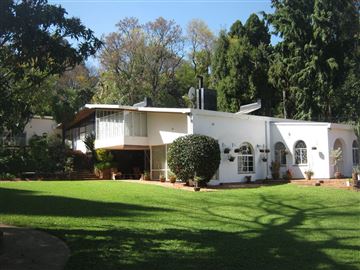Authenticating an Arbitral Award in Zimbabwe

A Cautionary Tale on Sale & Purchase Of Land in Zimbabwe
October 2, 2022The Alternative Dispute Resolution (ADR) mechanism has opened doors for parties who may wish to litigate their legal cases in fora other than the more formal court system. This has been a welcome and necessary step by policy and law makers in widening access to justice initiatives for citizens.
Within the basket of different types of ADR which a party may wish to employ, there is conciliation, mediation and arbitration. Conciliation and arbitration are statutorily required in labour matters,[1] and parties with commercial disputes are being encouraged to use the commercial arbitration tribunal for faster, cheaper ways of resolving their matters.
Once an arbitrated dispute has been litigated, the parties can expect a written decision[2], called an Arbitral Award, to be handed down by the Arbitrator. To enable the successful party to enforce this Award, the party must then proceed to the High Court and file an application for the registration of an arbitral award in terms of Article 35(1)[3] of the Arbitration Act, Chapter 7:15.
Article 35(2) then states;
“The party relying on an award or applying for its enforcement shall supply the duly authenticated original award or a duly certified copy thereof and the original arbitration agreement referred to in article 7 or a duly certified copy thereof. If the award or agreement is not made in the English language, the party shall supply a duly certified translation into the English language.”
It is clear that the party must supply the court with two things in order to be able to enforce the award:
1) a duly authenticated original award or a duly certified copy thereof; and
2) the original arbitration agreement or a duly certified copy thereof.
There is much debate as to what is a duly authenticated original award. The courts have not been able to conclusively end the debate and many parties either produce a certified copy of the signed award, stamped by a Commissioner of Oaths; or the original signed award itself; or as is increasingly happening more often now, they request the Arbitrator to sign a document titled Certificate of Authentication, stating ‘I confirm that this is the Award I handed down on …’ and attach the award itself to that certificate. The question is whether this is sufficient compliance with the Arbitration Act.
Looking at the United Nations Convention on the Recognition and Enforcement of Foreign Arbitral Awards of 1958, also known as the “New York Arbitration Convention” or the “New York Convention” (NYC), which is the key instrument in the enforcement of international arbitrations and non-domestic or foreign arbitrations, we might obtain some insight. The NYC does not define the term ‘authenticated’, but the International Council for Commercial Arbitration defines it as ‘the process by which the signatures on it [an award] are confirmed as genuine by a competent authority.’[4] According to an article “Challenges of Authentication and Certification of e-Awards in Dubai, the author[5] cites Julian Lew, et al, who argue that authentication means that the tribunal signed the award and it is genuine.[6] Consequently, the main aim of authenticating the award is to assure the enforcing court where the party is seeking enforcement that the signature on the award is genuine and has been signed by the arbitrators.[7]
In the case of NSSA vs HCZ SC20/22; Civ Appeal 338/20, the Supreme Court’s decision was that to authenticate means to confirm or verify that the existing award is the one issued to the parties by the arbitrator. “Authentication does not take place on the signing of the award, authentication is endorsed on the signed original award.”[8]
It is the purpose of the courts to facilitate the enforcement of arbitral awards and consequently sometimes our courts have not been too fussy about authentication where the original award was filed. Therefore, it is clear in the Supreme Court case of Gwanda Rural District Council vs Laurens Marthinus Botha Snr SC174/20 that they were satisfied with the original award being furnished, concluding that the purpose of requiring the original award before enforcement is to protect a respondent from the enforcement of a fake or erroneous award.
The court stated that Article 35 (2) was therefore crafted for the benefit of the respondent in an application for the registration of an award. “In this case the respondent however subsequently obtained and filed the original award with his answering affidavit thereby fulfilling the requirements of Article 35 (2) of the Model Law. The appellant’s complaint that the respondent’s application was void ab initio for want of compliance with Article 35(2) and therefore beyond repair is misguided. As we have already seen, the appellant was at fault in preventing the respondent from accessing the necessary documentation. It cannot therefore derive any benefit from its own fault.”
A strict reading of Article 35(2) would require that the original award must be authenticated and not the mere production of the signed original award or a certified copy of the original award. Authentication must be through a “process by which the signatures on the award are confirmed as genuine by a competent authority” as defined by the NYC. This should be the correct approach. In Zimbabwe, the High Court Rules (Authentication of Documents) RGN 995 of 197, require that documents be notarized when confirming that the signature on them is genuine[9]. A Notary Public is the competent authority statutorily designated in Zimbabwe to make such a confirmation; one who has undertaken and been qualified in the examination of notarial practice and duly admitted as such in the High Court[10].
Prepared by: Roseline Zigomo
[1] Section 93(1) Labour Act, Chapter 28:01
[2] Article 31 (1) “The award shall be made in writing and shall be signed by the arbitrator or arbitrators…”
[3] Article 35(1) “An arbitral award, irrespective of the country in which it was made, shall be recognised as binding and, upon application in writing to the High Court, shall be enforced subject to the provisions of this article and of article 36.”
[4] CCA’s Guide to the Interpretation of the 1958 New York Convention: A Handbook for Judges (International Council for Commercial Arbitration, 2011), II.2.1.
[5] Omar Husain Quoteshart
[6] Julian D. M. Lew, Loukas A. Mistelis and Stefan Michael Kröll, Comparative International Commercial Arbitration (Kluwer Law International, 2003), p 705.
[7] “Challenges of Authentication and Certification of e-Awards in Dubai and before the Dubai International Finance centre Courts: the electronic signature by Omar Husain Quoteshart at page 2
[8] National Social Security Authority vs Housing Corporation of Zimbabwe SC20/22 per Mavangira JA at page 2
[9] Rule 3(a) “Any document executed outside Zimbabwe shall be deemed to be sufficiently authenticated for the purpose of production or use in any court or tribunal in Zimbabwe or for the purpose of production or lodging in any public office in Zimbabwe if it is authenticated: – a) “by a notary public, mayor or person holding judicial office; “
[10] See the case of Prosper Tawanda vs Thobakele Ndebele HB 27/06; HB1826/05


